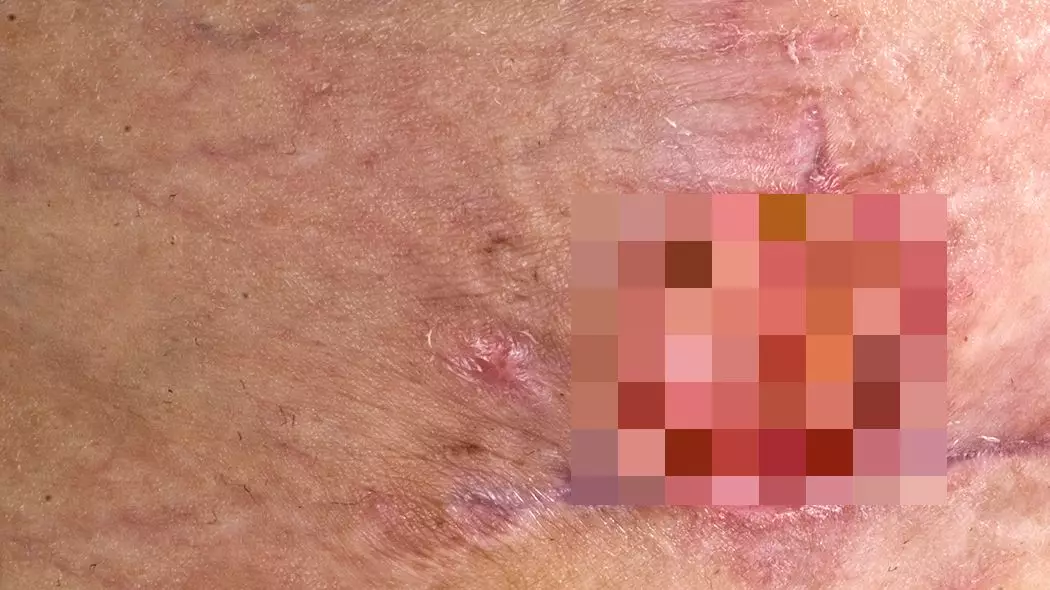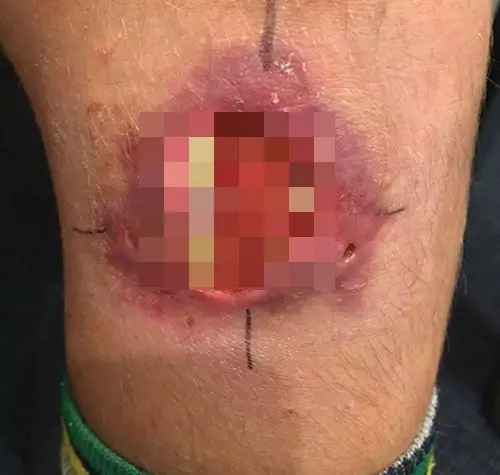
Several suburbs in inner Melbourne have been put on alert after a skin-eating bacteria was discovered, representing the first time a non-coastal area has been designated 'a potential area of risk'.
The bacteria - known as the Buruli ulcer - is a skin infection caused by the bacterium Mycobacterium ulcerans and has typically been found around the Mornington Peninsula.
It can often be mistaken as an insect bite, but if it's left to fester it can grow into a huge lesion that needs urgent treatment.
Advert
Authorities in Victoria have issued a health alert after finding cases of the bacteria in Essendon, Moonee Ponds and Brunswick West.
A statement from Victoria Health said: "A genetic analysis of bacteria isolated from these people as part of a research project suggests a common source of infection in the area.
"The risk of acquiring Buruli ulcer in these areas is considered low. However, this is the first non-coastal area in Victoria to be recognised as a potential area of risk.
"Early diagnosis is critical to prevent skin and tissue loss - consider the diagnosis in patients with a persistent ulcer, nodule, papule, or oedema and cellulitis especially on exposed parts of the body."
Advert

The incubation period of the bacteria can be anywhere from four weeks to nine months, and authorities say the lesion can occur anywhere on the body.
Mycobacterium ulcerans produces a toxin in the body that will stop your immune system from kicking into gear to attack the bacteria, all while it continues to break down the tissue in your skin.
The source of the recent outbreak in inner Melbourne hasn't been identified. The bacteria has been isolated in the faeces of a local possum, however mosquitos are also known to spread it.
Advert
Professor Tim Stinear from Melbourne's Doherty Institute told the ABC people should contact their GP if they're concerned.
"If people present with a small mosquito bite that doesn't look quite right there's a very good diagnostic test," Professor Stinear said.
"If you're given the right antibiotics then there's a really good clinical outcome for people.
"Yes, it is a flesh-eating disease but it's a very slowly moving one, one we can treat, and if we detect it early then it's not a serious infection."
Advert
Thankfully, authorities have said there is a 'low risk' of transmission at the moment and are conducting more tests to ensure the issue isn't more widespread.
Featured Image Credit: Victorian GovernmentTopics: Australia